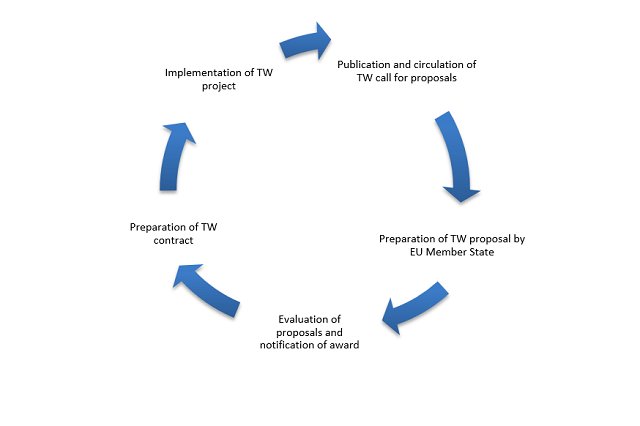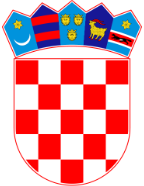European Commission sets up legal, financial and procedural framework for implementation of Twinning projects.
The role and level of involvement of the European Commission in a particular Twinning project differs depending on the implementation system established in each Beneficiary Country.
There are direct and indirect project management system. In direct management system the European Commission has the role of a Contracting Authority that publishes Twinning fiches, supervises the evaluation and selection of Twinning proposals, performs contracting procedures and concludes contracts, monitors project implementation and verifies project reports. In indirect management system the abovementioned roles and procedures are delegated to the relevant implementing body (Central Finance and Contracting Entity) with ex-ante or ex-post controls by the European Commission.
In both project management systems, European Commission has a key role in setting up priorities in the allocation of EU funds for Twinning projects under the framework of relevant financial instruments, taking into account that the funds for the Twinning project implementation are provided by the EU.
Twinning project cycle:

Twinning call for proposals is published and circulated to EU Member States after the completion of the programming phase and finalization of the Twinning fiche in which the Beneficiary Country specifies the project purpose and the mandatory results to be achieved by the project.
Twinning proposal can be submitted solely by the public bodies and institutions of the EU Member State or in some cases, institutions and bodies which were granted approval by the European Commission to participate in Twinning projects as mandated bodies that act as a substitute of public administration. The EU Member State public institution or body prepares Twinning proposal either independently or in consortium with other EU Member States. All submitted proposals are evaluated based on the objective criteria by the Evaluation Committee established by the public institutions or bodies from the Beneficiary Country. After completion of the evaluation and selection process, the selected EU Member State is invited to prepare a Twinning contract.
The project team from the EU Member State and their counterparts from the Beneficiary Country are in charge of implementation of Twinning project. Each project has two Project Leaders, one on behalf of the EU Member State and each on behalf of the Beneficiary Country. One of the backbones of Twinning project is the Resident Twinning Advisor (RTA) who is seconded to work in the Beneficiary Country for a period of at least 12 months. The Beneficiary Country is obliged to appoint the RTA counterpart who works in close cooperation with the RTA. In the project implementation also participate short-term experts from the EU Member States who implement missions in the Beneficiary Country and together with the experts from the Beneficiary Country implement project activities and deliver project results.
National Contact Points for Twinning (NCP)
In the Twinning implementation system an important role is placed on the National Contact Points for Twinning (NCP) that are established in all EU Member States and all Beneficiary Countries. NCP is a central point of communication between the European Commission, EU Member States and Beneficiary Countries. Moreover, NCP has a key role in promotion of Twinning tool, coordination of Twinning projects and communication and channelling information (e.g. NCP of the EU Member State informs its public institutions and bodies of the published Twinning fiches; NCP of the Beneficiary Country provides relevant information on Twinning procedures to public institutions and bodies in the Beneficiary Country).





